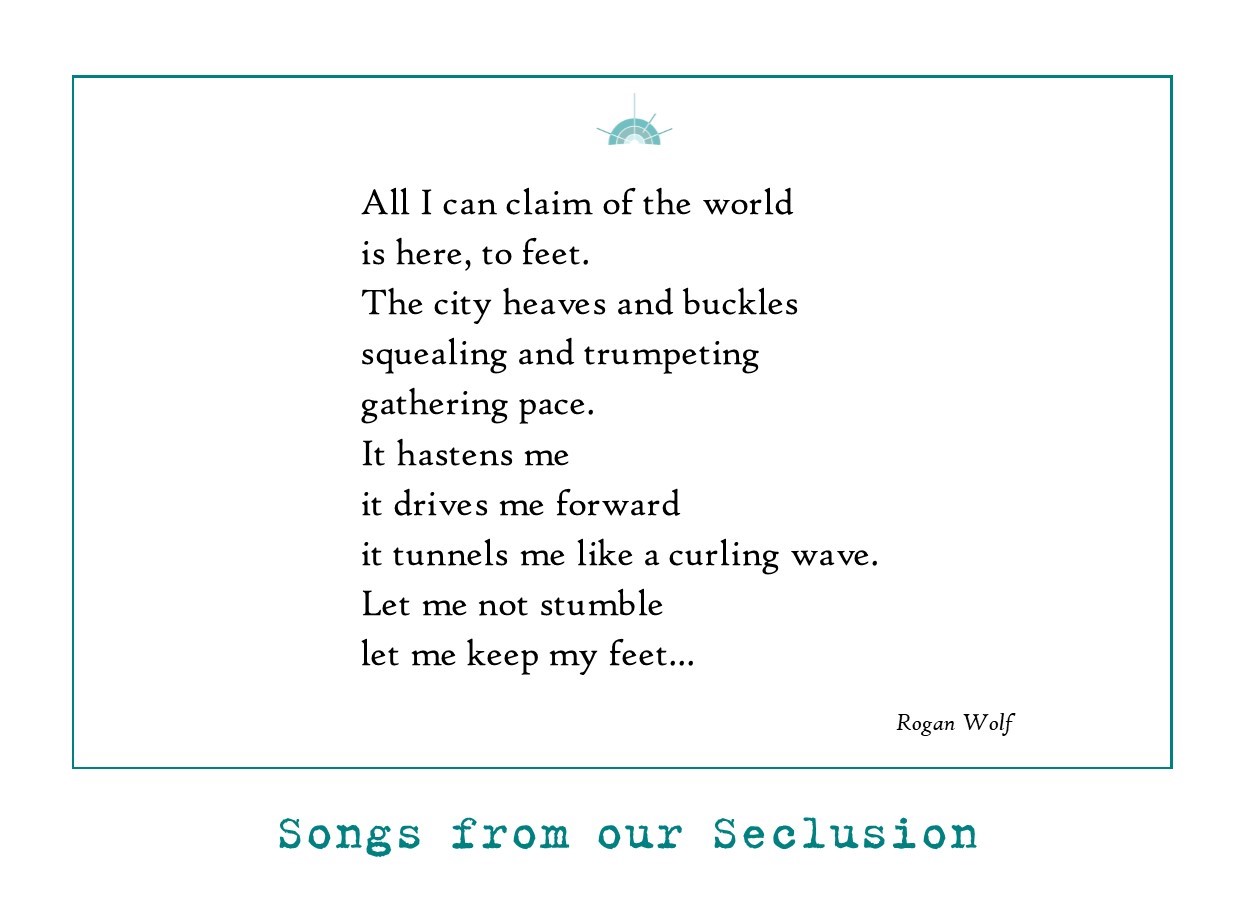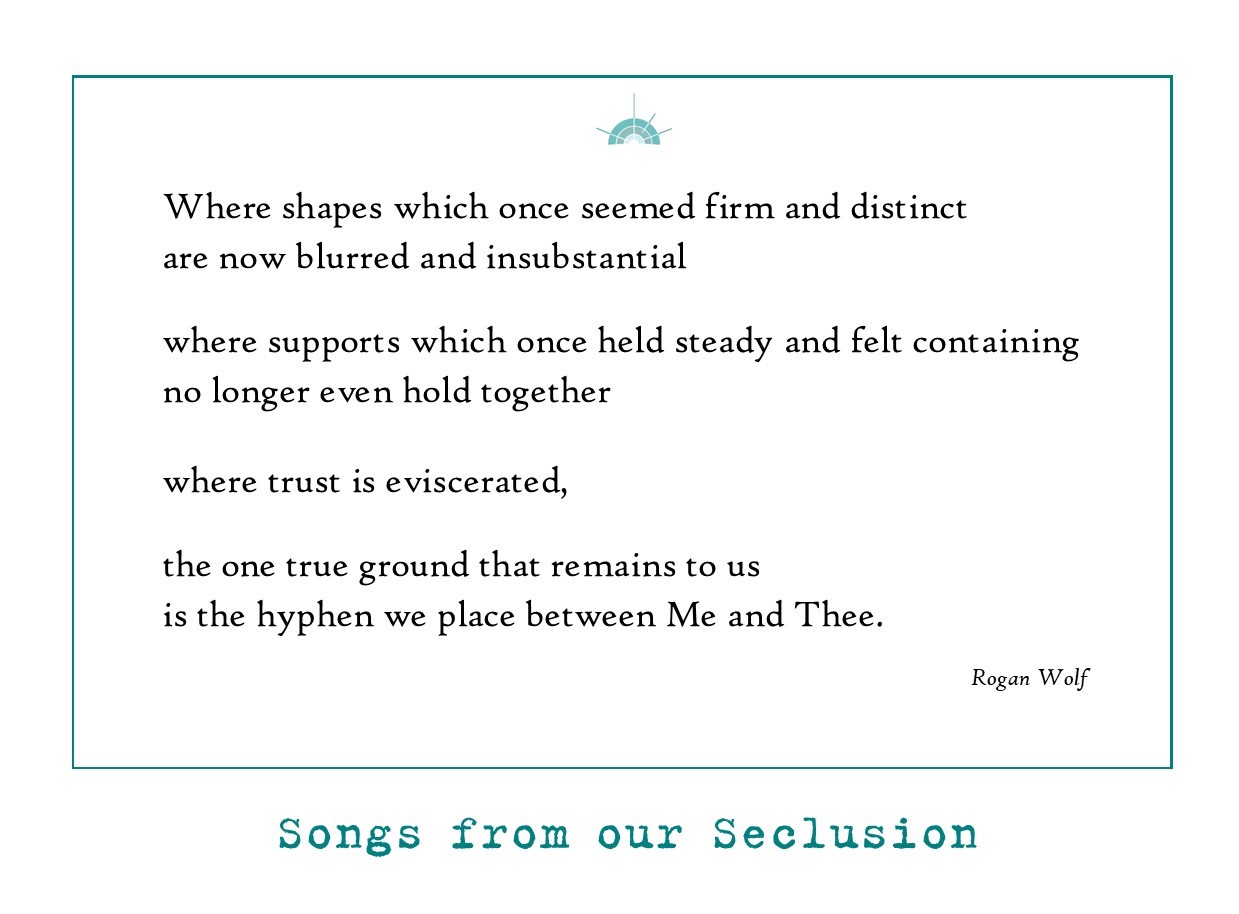
In the world we’ve made, the hyphen between I and Thou becomes a surf-board, the hyphen-rider poised, precarious at all times.

In the world we’ve made, the hyphen between I and Thou becomes a surf-board, the hyphen-rider poised, precarious at all times.
Posted:

The reference here is to a book and an image I keep referring to. It is called “I and Thou” and is by Martin Buber.
Buber compares two essential ways of reaching out beyond the Self to meet the world : one is I – It (my object) and the other I – Thou (my neighbour).
In I-It mode, I am the sole centre. I reach out beyond my Self as to my object, my study. I measure. I seek to use.
In I -Thou mode, I remain the centre but so too is that which I have met. We are equally central, equally sacred.
Posted:

Perhaps it would have been more appropriate to have uploaded these lines yesterday, Good Friday. On Good Friday this year, the highest number of coronavirus deaths so far was recorded in the UK.
Posted: